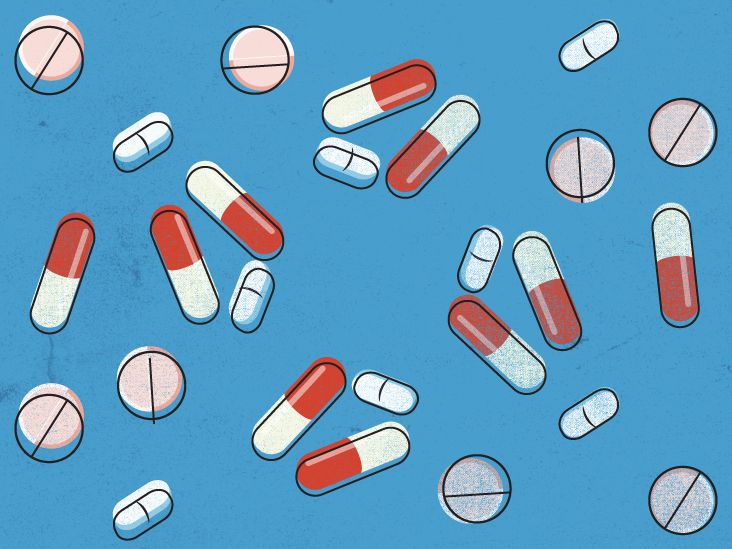Understanding the Causes of the Adderall Shortage
Before delving into potential solutions, it's essential to understand the root causes of the Adderall shortage. The shortage can be attributed to several factors, including:
Manufacturing Issues
According to the U.S. Food and Drug Administration (FDA), manufacturing delays and disruptions have contributed significantly to the Adderall shortage. Manufacturers have faced challenges in keeping up with the high demand for the medication, leading to supply chain issues.
Increased Demand
Over the years, the number of ADHD diagnoses has risen, resulting in a surge in the demand for Adderall and other stimulant medications. This increased demand has put pressure on manufacturers to produce sufficient quantities to meet the growing need.
Regulatory Factors
Adderall is a controlled substance, and its production and distribution are subject to strict regulations by the Drug Enforcement Administration (DEA). These regulations aim to prevent diversion and misuse but can also contribute to supply chain challenges.
Alternative Medications for ADHD Management
When faced with the inability to obtain Adderall, healthcare providers may recommend alternative medications to help manage ADHD symptoms. Some options include:
Methylphenidate-Based Medications
Medications like Ritalin, Concerta, and Focalin belong to the methylphenidate class of stimulants and are often considered as potential alternatives to Adderall. These medications work similarly to Adderall by increasing dopamine and norepinephrine levels in the brain, thereby improving focus, concentration, and impulse control.
Non-Stimulant ADHD Medications
For individuals who cannot tolerate or prefer not to use stimulant medications, non-stimulant options such as Strattera (atomoxetine), Intuniv (guanfacine), and Kapvay (clonidine) may be considered. These medications work differently than stimulants but can still help improve ADHD symptoms by targeting specific neurotransmitters in the brain.
Xanax and Vyvanse Combination
In some cases, healthcare providers may recommend a combination of Xanax (alprazolam) and Vyvanse (lisdexamfetamine). While Vyvanse is a stimulant medication used to treat ADHD, Xanax is a benzodiazepine typically prescribed for anxiety disorders. The rationale behind this combination is that Xanax can help mitigate the potential side effects of stimulants, such as increased anxiety or irritability, while Vyvanse addresses the core ADHD symptoms. However, it's crucial to consult with a healthcare professional and carefully weigh the risks and benefits before considering this approach.
Coping Strategies for ADHD Management
In addition to exploring alternative medications, implementing coping strategies can be beneficial for managing ADHD symptoms during the Adderall shortage. Here are some strategies to consider:
Cognitive Behavioral Therapy (CBT)
CBT is a widely recognized form of talk therapy that can help individuals with ADHD develop coping mechanisms and strategies for managing their symptoms. A trained therapist can guide patients in identifying and modifying negative thought patterns, improving time management skills, and developing organizational techniques.
Lifestyle Modifications
Making lifestyle adjustments can significantly impact ADHD symptom management. Strategies such as maintaining a consistent sleep schedule, engaging in regular exercise, and practicing mindfulness techniques like meditation can help improve focus, concentration, and overall well-being.
Environmental Adjustments
Creating a structured and organized environment can be beneficial for individuals with ADHD. Minimizing distractions, using planners or scheduling tools, and establishing designated workspaces can help promote productivity and minimize the impact of ADHD symptoms.
Support Systems
Building a strong support system is crucial for individuals navigating the Adderall shortage. Seeking encouragement and guidance from family, friends, support groups, or mental health professionals can provide a sense of community and help individuals develop effective coping mechanisms.
Conclusion
While the ongoing Adderall shortage has posed significant challenges for individuals with ADHD, there are alternative options and coping strategies available. By exploring alternative medications, implementing cognitive-behavioral therapies, making lifestyle modifications, adjusting the environment, and building a supportive network, individuals can effectively manage their ADHD symptoms and maintain a productive and fulfilling life. It is essential to work closely with healthcare providers to find the most suitable approach tailored to individual needs and preferences.
FAQs
Why is there an Adderall shortage?
The Adderall shortage is primarily due to manufacturing issues, increased demand, and regulatory factors. Manufacturers have faced challenges in keeping up with the high demand for the medication, leading to supply chain disruptions. Additionally, strict regulations by the Drug Enforcement Administration (DEA) on the production and distribution of controlled substances like Adderall have contributed to the shortage.
What alternative medications can be used for ADHD management?
Some alternative medications for ADHD management during the Adderall shortage include methylphenidate-based medications like Ritalin, Concerta, and Focalin, as well as non-stimulant options such as Strattera (atomoxetine), Intuniv (guanfacine), and Kapvay (clonidine). In some cases, healthcare providers may also consider a combination of Xanax (alprazolam) and Vyvanse (lisdexamfetamine).
What coping strategies can help manage ADHD symptoms?
Coping strategies for ADHD management during the Adderall shortage include cognitive behavioral therapy (CBT), lifestyle modifications (consistent sleep schedule, exercise, mindfulness techniques), environmental adjustments (minimizing distractions, using planners, designated workspaces), and building a strong support system (family, friends, support groups, mental health professionals).
Is it safe to combine Xanax and Vyvanse for ADHD management?
The combination of Xanax (alprazolam) and Vyvanse (lisdexamfetamine) may be considered by healthcare providers in some cases, as Xanax can help mitigate potential side effects of stimulants like Vyvanse. However, it's crucial to consult with a healthcare professional and carefully weigh the risks and benefits before considering this approach, as there may be potential interactions and side effects to consider.
How can I effectively manage my ADHD symptoms during the Adderall shortage?
To effectively manage ADHD symptoms during the Adderall shortage, it's essential to work closely with a healthcare provider to explore alternative medications tailored to individual needs and preferences. Additionally, implementing coping strategies such as cognitive behavioral therapy, lifestyle modifications, environmental adjustments, and building a strong support system can be beneficial in managing ADHD symptoms during this challenging time.
Disclaimer: This article is for informational purposes only and does not constitute medical advice. Always consult with a healthcare professional before starting any new treatment regimen.
Related Coverage
Provigil (modafinil) is currently in shortage due to production issues and high off-label demand. Discuss options like lifestyle changes or alternative prescriptions....
Wellbutrin and Vyvanse are sometimes used together to treat adult ADHD. Wellbutrin enhances focus and counteracts stimulant side effects....
Learn how long Adderall stays effective for ADHD symptoms with immediate and extended release forms. Get tips for timing doses and minimizing ongoing side effects....
When an ADHD child refuses schoolwork, it often stems from struggles to focus, follow instructions, and handle the demands of school. With support at home and accommodations at school, they can overcome avoidance....
The ongoing Adderall shortage has left many struggling to manage ADHD. Explore alternative medications, coping strategies, and lifestyle adjustments to effectively navigate this challenge....
Struggling with ADHD and insomnia? You're not alone. Learn how these conditions clash and what small changes can finally bring restful sleep....
Learn about the safety, risks, and side effects of combining Lexapro and Adderall. Get tips for managing ADHD symptoms during Adderall shortages....
Research on chocolate and ADHD is inconclusive. While chocolate has caffeine and sugar, it also has brain-healthy antioxidants. Learn whether chocolate is OK for ADHD....
Comparing Strattera and Ritalin for ADHD treatment. Find out which medication may work best for your symptoms and lifestyle....
Find out how ADHD military eligibility works, waiver options, branch differences, and steps to prove you're fit for service....






